Resources
Planning
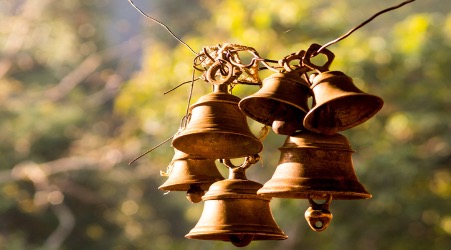
A Guide to Hindu Funeral Customs and Traditions
- November 22, 2021
- Planning
PLANNING A HINDU FUNERAL CEREMONY?
“As with other religions, Hindu funeral rites and traditions vary to match the wants and needs of each religious sect and each family.”
Hinduism is the world’s third most popular religion. It is estimated that nearly a billion people follow it. Hinduism, unlike other religions, has no founder and no common creed or theory. The religion, which is most common among Asian Indians, believes that God exists within and beyond all beings and objects in the universe. It teaches that each soul’s essence is divine and that the purpose of existence is to become aware of that divine essence.

How to Write an Obituary
- November 15, 2021
- Planning
Losing a loved one is one of the most emotionally challenging things we can face in our lives. Writing an obituary can help us memorialize the life and legacy of a special person we lost, as well as create a meaningful, lasting tribute to them in their honor.
As you are grieving and mourning your loss, finding the right words to include in an obituary in a loved one’s memory, as well as communicating the devastating news of their passing isn’t easy. However, creating an obituary is vital in acknowledging and communicating of the loss, and in notifying others important details in regards to their funeral ceremony and services. By writing an obituary, we also get the opportunity to commemorate and tell the world about that special person we’ll always hold dear to us. Beyond all the beautiful and meaningful things conveyed in a well-written and eloquent obituary, an obituary also allows you to pay homage to the life your loved one lived, accomplishments, special relationships and experiences as well as all of the important things he or she should be remembered for.
Although this is not an easy task, we hope to provide you with some guidance and a point of reference to help you achieve an obituary worthy of every reader’s respect and admiration. Read on to learn everything you need to know to create an obituary for your loved one that does justice to the special and beloved person they were.

Funerals: a consumer guide
- November 10, 2021
- Planning
When a loved one dies, grieving family members and friends often are confronted with dozens of decisions about the funeral – all of which must be made quickly and often under great emotional duress. What kind of funeral should it be? What funeral provider should you use? Should you bury or cremate the body, or donate it to science? What are you legally required to buy? What other arrangements should you plan? And, as callous as it may sound, how much is it all going to cost?
Each year, Americans grapple with these and many other questions as they spend billions of dollars arranging more than 2 million funerals for family members and friends. The increasing trend toward pre-need planning – when people make funeral arrangements in advance – suggests that many consumers want to compare prices and services so that ultimately, the funeral reflects a wise and well-informed purchasing decision, as well as a meaningful one.
A consumer product
Funerals rank among the most expensive purchases many consumers will ever make. A traditional funeral, including a casket and vault, costs about $6,000, although “extras” like flowers, obituary notices, acknowledgment cards or limousines can add thousands of dollars to the bottom line. Many funerals run well over $10,000.
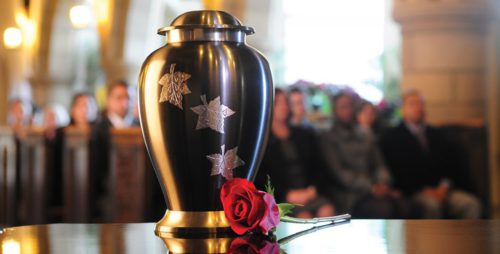
Deciding between Cremation and Burial
- November 9, 2021
- Planning
We will all be confronted someday with the thoughts and decisions about what happens to our bodies when we pass on. Death is as much a part of life as is birth. In life we must confront choices, as in death. Honoring the body of our loved ones upon their death is as old a tradition as any other in the human experience. We have different ways to pay respect, but the respect is the same. And yet we often find this topic too uncomfortable to discuss, and so our final wishes may be unknown.
Talk about it with family members
What are your wishes? Does your family know? Have you considered the options available?
These may not be Sunday dinner conversations, but they are important ones to have. If you do not let your loved ones know whether you would like to be cremated or buried, they will have to make the decision for you. Isn’t it better that they know what you want so they can honor you and your wishes when the time comes?
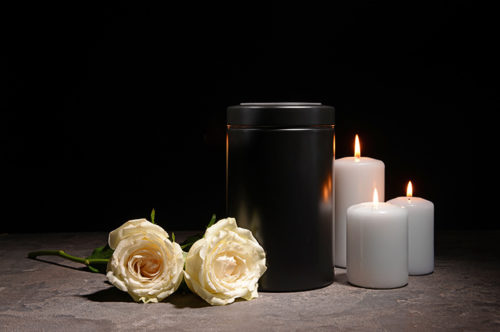
A Guide To the Cremations Process
- November 9, 2021
- Planning
No matter how you choose to memorialize a loved one after their passing, it is a decision that carries great emotional sentiment. While the more traditional method of memorializing a loved one through a burial can seem like a much more straightforward process, the process of cremation can feel mysterious, foreign, and even scary in comparison. Choosing cremation to pay homage to your loved one carries many benefits such as lower cost, more personalization options after in regard to your being able to scatter the remains in various locations, and it is even a more eco-conscious choice for the environment. You may find that cremation is the best choice for you to pay tribute to your loved one and to honor their life and legacy in a meaningful way.
If you are arranging a loved one’s funeral, and are curious about cremation, we have assembled a basic guide to the process, so you are best prepared and know what to expect.
What is Cremation?
Cremation is the process of transforming a person’s remains through intense heat, flames, and evaporation into “ashes.” While most people think of these ashes as resembling that of fireplace ashes, cremated remains are more complex in composition, containing tiny fragments of bone as well.
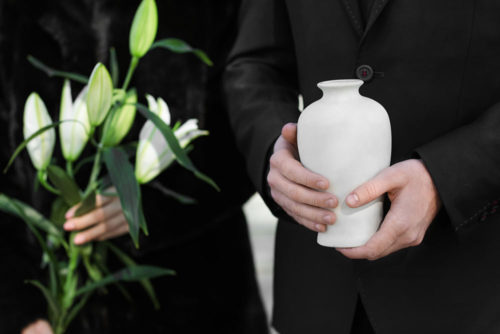
Is it Acceptable to Divide Cremation Ashes?
- November 5, 2021
- Planning
Cremation is becoming an increasingly popular method for paying tribute to a loved one who has passed. In addition to its eco-friendly, smaller global footprint, a decline in religious traditions, and its lower cost than burial services, the simple fact that it allows family members to equally divide the decedent’s ashes amongst them also accounts for its growing popularity. In the past, families would decide who amongst them would receive the ashes of their loved one. Thankfully, those days are gone, and families can now divide the remains into individual keepsake urns, and then equally divide those between family members.
If your loved one has passed, you may be wondering if it is even acceptable to divide their ashes amongst family members. Regardless of what the law and religions have to say about it, if it was your loved one’s wish to be cremated and then have their remains shared between family members, that is what should be done to pay homage to your loved one’s legacy. We will explore the topic in more depth here, reviewing the various legal, religious, and personal implications of dividing cremated ashes.
What do Religions Have to Say About Dividing Cremated Ashes?
Depending on differing theological perspectives, the standpoint of religion varies in its views on dividing cremated ashes. According to Muslim and Jewish religious traditions, the act of cremation itself is looked down upon as it is seen as an action that dishonors the human body. Buddhism, Hinduism and other Eastern religions, on the other hand support and even strongly encourage cremation, but do not offer any specific guidelines as to how cremated remains should be handled. The Christian church is silent, on the matter altogether.

Can You Still Hold Traditional Funeral Services if You Choose to Do Cremation?
- November 5, 2021
- Planning
Cremation is becoming a popular choice for families as a way of memorializing their loved ones. It is a common misconception however, that if you choose to do a cremation for your loved one, that you cannot hold a visitation, wake or other traditional funeral services. You need not be concerned about this. In truth, it is not only accepted to hold a visitation or funeral service before a cremation; it is completely appropriate to do so. The important thing is to honor your loved one in a way that will be sentimental and meaningful for you and your family that also abides by your loved one’s personal wishes. One of the benefits to choosing cremation is that families can enjoy more freedom in choosing which kind of ceremony they would like to hold to pay tribute to their loved one. So, the key takeaway here is that most likely, your needs and wishes can be accommodated to honor your loved one before or after cremation.
Are Traditional Memorial Services Held Before or After the Cremation Process?
While a traditional memorial service can be held prior to or after the cremation process, it is more common for it to take place before, This also enables you to have the opportunity to hold an open casket as well. Usually, in a wake, family members visit their loved one prior to the funeral service, with the casket present and the body of their loved one embalmed inside. With visitations on the other hand, it is not necessary for the casket or the body of the deceased to be present. Visitations usually occur one day before or the same day as the memorial services.
How is the Casket Handled in Cremation?
If your loved one is cremated prior to visitation, a “rental” casket would be used for the visitation or wake ceremony. The exterior of the casket would be of a hardwood shell, and would look as such to any one viewing it, but the interior would contain the cremation container holding your loved one’s remains. The hardwood shell casket would be re-used while the interior will be cremated with the deceased, making it a more environmentally conscious as well as economical option than if you were to use a cremation casket.
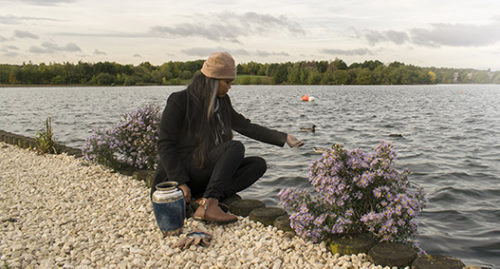
Why Cremation is Growing in Popularity
- November 5, 2021
- Planning
When a loved one dies, the kind of memorial service you choose to have for them is incredibly important in honorably commemorating their life and legacy. In recent years, cremation has become a popular choice of memorial service amongst families in the U.S. In fact according to a 2017 report by the Cremation Association of North America, for the first time ever more Americans are choosing cremation ver traditional methods of burial to pay tribute to their deceased loved ones.
What accounts for this growing popularity of cremation? Cremation offers a plethora of benefits that make it the smarter choice for many families on various economic, social, demographic and religious levels. We will explore those factors here so you can decide whether cremation will be the best method of memorialization for your loved one.
1. More Economical In Cost
Cremation is considerably less costly than that of a traditional burial. This is due to the fact that it is a simpler method of commemoration that requires far less steps and processes than that of traditional burial which requires a casket, embalming, burial plot, etc. All of those individual processes greatly add up in cost. Many families enjoy the simplicity of cremation, and the ease of being able to conduct such a service without having to worry about affording and coordinating all of the other processes required for burial, during an already challenging time.
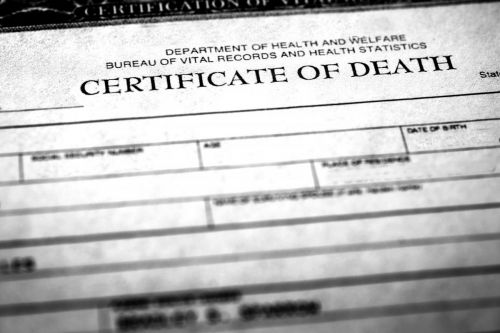
How To Get A Death Certificate
- November 4, 2021
- Planning
If you recently lost a loved one, you may be wondering how you can obtain a death certificate for them. In this emotionally difficult time, the last thing you want is to worry about the logistics of dealing with how to attain a death certificate, and what it needs to include.
So, we put together this helpful guide offering all the information you need to know, regarding obtaining a death certificate for your loved one.
After someone dies, you are legally required to register their death with the local or state office of vital statistics within a few days of their passing, as well as issue a death certificate for them. These will be necessary in order to make funeral arrangements for your loved one, as well as handle their personal, financial and legal affairs.

Is it Necessary to Embalm A Body Before Cremation?
- November 4, 2021
- Planning
If you recently lost a loved one, and you’re considering cremation for them, you may be wondering if it’s required or necessary to do an embalming prior to their cremation. As you navigate an emotionally complicated time, the last thing you need is to be bogged down understanding the requirements of different memorial services. So, we will break it down here, discussing what the practice of embalming entails and the role it plays in regards to cremation.
What is Embalming and Why is it Performed?
Embalming refers to a method of preserving the body of a deceased person using a process of disinfection and treating the body with a preservative solution in order to slow down the decomposition process.
Delayed Memorial Service
Maybe, you have family members coming in from out of state to attend the funeral and therefore, there will be a couple of days in between your loved one’s passing and services. In such situations in which there will be a prolonged period of time in between a person’s death and their cremation, it is advisable to have the body embalmed first to preserve the body and slow down its decomposition.
